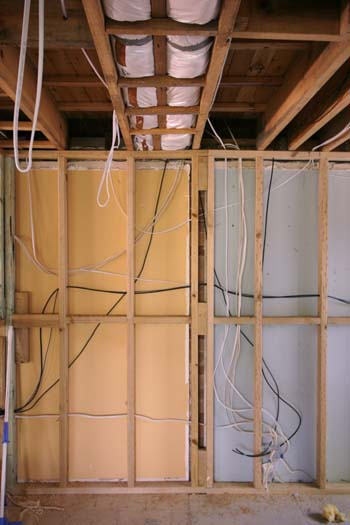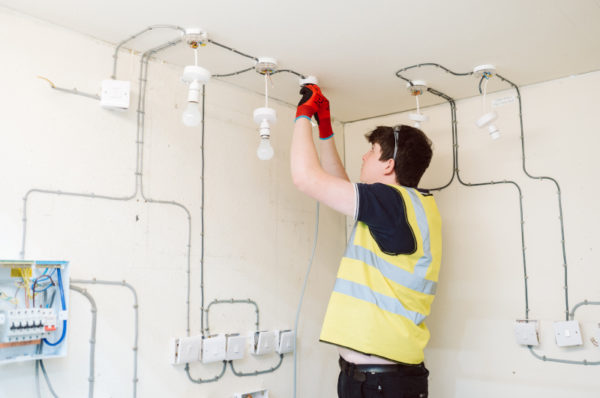Advanced BRE Automation Australia: Changing Your Automation Needs
Advanced BRE Automation Australia: Changing Your Automation Needs
Blog Article
Debunking Electric Installment: Comprehending Codes and Rules for a Legal and Safe Arrangement
In the world of electrical installation, adherence to codes and laws is vital to guarantee both legality and safety. The journey to demystifying electric installment goes beyond simple knowledge with laws; it requires a profound understanding of how to execute risk-free electric practices successfully.
Value of Electric Codes
The adherence to electrical codes is essential in ensuring the security and integrity of electrical installations. Electrical codes act as a set of requirements and standards that dictate the correct layout, installment, and maintenance of electrical systems. These codes are established to reduce the danger of electric threats, fires, and various other safety and security issues that might arise from faulty electric job.

Moreover, electric codes are on a regular basis upgraded to incorporate new innovations, best practices, and safety measures. Staying updated with these codes is necessary for experts in the electrical sector to make sure that their work satisfies the most current safety and security standards. Ultimately, the significance of electric codes depends on developing a secure and effective electrical facilities that benefits both individuals and neighborhoods.
Trick Regulations for Security
A number of essential laws govern the safety requirements in electric setups. One vital law is the National Electrical Code (NEC), which gives standards for secure electrical design, installation, and evaluation to protect individuals and residential or commercial property from electric risks. The NEC covers facets such as circuitry methods, grounding, overcurrent defense, and equipment installation to guarantee a risk-free electrical system.
Another important guideline is the Occupational Safety and Wellness Administration (OSHA) requirements, which concentrate on the security of employees involved in electric installments (BRE Electrical). OSHA policies consist of requirements for proper training, security treatments, and individual safety tools to avoid office mishaps and injuries
Moreover, the International Electrotechnical Commission (IEC) standards intend to integrate electric installation guidelines on a worldwide scale. These criteria address problems like electrical devices security, electro-magnetic compatibility, and power performance to promote uniformity and safety in electrical installments worldwide.
Compliance with these vital guidelines is vital to make certain the safety and security and legality of electrical setups, protecting both people and home from the dangers connected with power.
Understanding National Electric Code
Secret policies such as the National Electric Code (NEC) provide important standards for safe electrical design, installment, and evaluation to make sure the security of people and building from electrical threats. The NEC, additionally called NFPA 70, is a detailed collection of requirements for electrical installations that are upgraded every three years. It is created by the National Fire Security Organization (NFPA) and is commonly embraced throughout the USA.
The NEC covers numerous facets of electrical job, including electrical wiring approaches, grounding, overcurrent security, and devices installation. It aims to secure individuals and home by attending to prospective dangers connected with electric systems. Compliance with the NEC is generally applied by regional authorities having jurisdiction (AHJs), such as constructing code authorities and assessors.
Comprehending the NEC is essential for electric service providers, developers, and assessors to make sure that setups meet the necessary safety and security requirements. By adhering to the NEC standards, specialists can assist protect against electrical crashes and ensure the reliability of electric systems in residential, industrial, and industrial settings.

Conformity With Neighborhood Building Ordinance
Recognizing and adhering to local building ordinance is vital for making certain the safety and compliance of electrical installations within a specific jurisdiction (BRE Electrical Solutions). Local building ordinance differ from one town to one more, and they are implemented to safeguard the health of residents and homes. These codes describe specific demands for electrical setups, such as the kind of wiring to be used, positioning of outlets, basing techniques, and lots abilities. By adhering to neighborhood structure codes, electricians can make sure that setups are done appropriately and meet the needed safety and security criteria.
When BRE Electrical it comes to electric setups, failing to abide with local structure codes can result in major consequences. Non-compliant installments might pose safety and security risks, increase the threat of electric fires, and lead to expensive penalties or lawful concerns.
Making Sure Safe Electric Practices
Practicing stringent adherence to established safety methods is vital in the area of electric installments to reduce prospective threats and guarantee the health of people and residential or commercial properties. Security in electric work includes numerous aspects, starting with the correct training of personnel involved in installation, maintenance, and repair. By focusing on safe techniques, electrical setups can work efficiently while minimizing the possibility of crashes or damage.
Conclusion
To conclude, adherence to electrical codes and laws is vital for making certain the safety and security and legality of electric installations. Understanding the National Electric Code and compliance with neighborhood structure codes are essential for a secure arrangement. By complying with these guidelines and practicing risk-free electric methods, individuals can stop prospective dangers and make sure the correct functioning of their electric systems.
Report this page